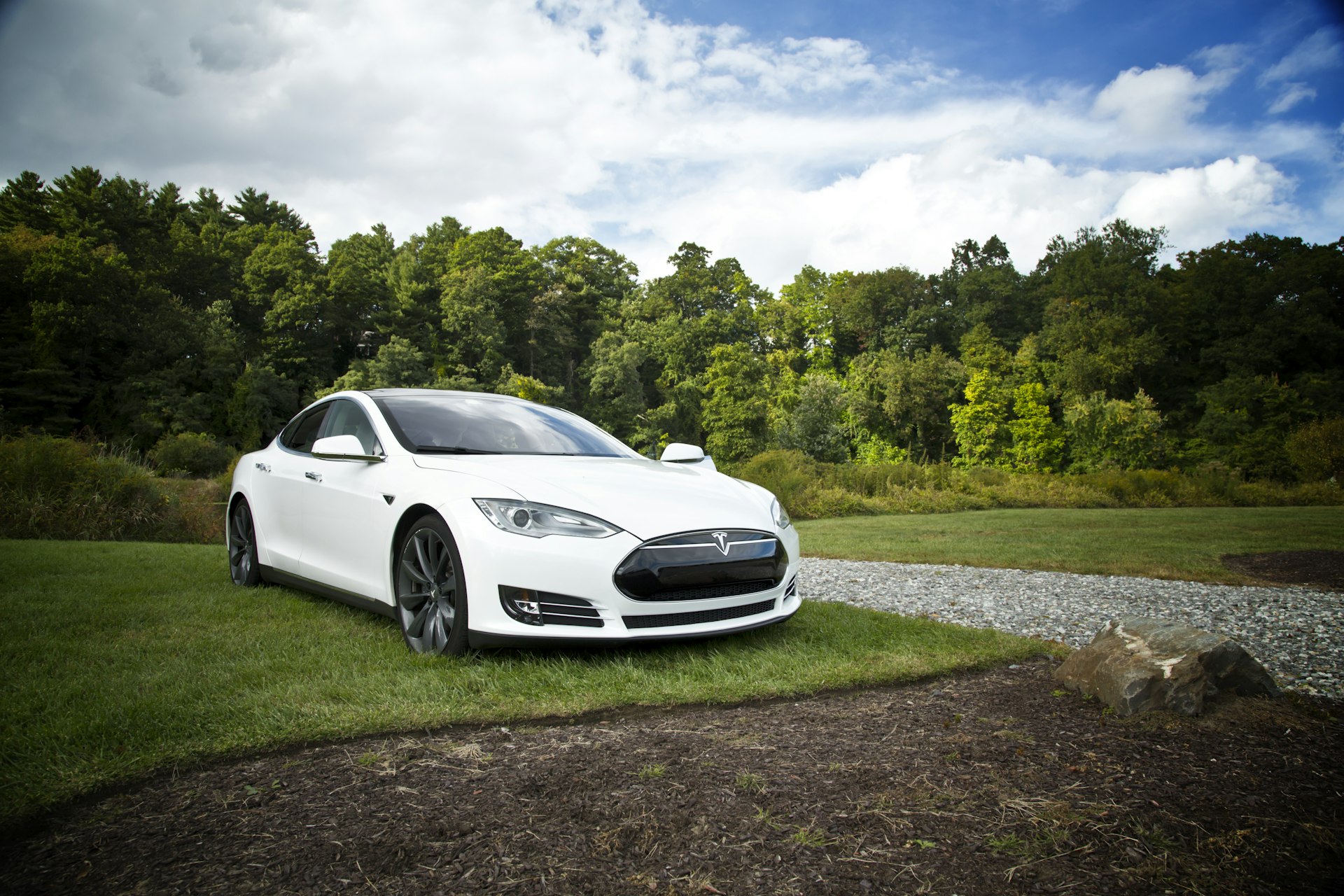How Personalized Vehicle Design Platforms Are Shaping Consumer Choice in the Automotive Industry

Photo by Michal Balog on Unsplash
Introduction: The Evolution of Vehicle Customization
Personalized vehicle design platforms are revolutionizing how consumers select, purchase, and interact with automobiles. These platforms offer the ability to customize everything from color and wheels to infotainment and driving modes, transforming traditional car buying into an immersive, user-centric experience. As the automotive industry adapts to the digital age, the influence of customization tools on consumer choice grows ever stronger, driven by technological innovation and shifting expectations. [1]
Digital Customization: Empowering the Consumer
Modern digital platforms enable buyers to visualize and configure vehicles in real time. Consumers can experiment with various options-interior finishes, wheel designs, paint colors-before committing to a final purchase, fostering confidence and reducing anxiety. [2] The freedom to create a car that reflects personal taste deepens emotional bonds and satisfaction, giving rise to a new era of automotive engagement.
For luxury buyers especially, the ability to tailor vehicles has become a critical factor in purchasing decisions. These tools often employ interactive 3D models, allowing users to rotate and inspect their customized choices from every angle. This convenience and immersion mean consumers are more likely to find a vehicle that fits their vision perfectly, increasing overall happiness and loyalty.
Market Impact: Personalization Drives Sales and Satisfaction
The market for personalized in-vehicle experiences is expanding rapidly. In 2021, this sector was valued at $1.3 billion and is projected to exceed $8.5 billion by 2028, reflecting a compound annual growth rate of 30.7%. [3] According to recent research, 74% of car buyers now consider personalized options a decisive factor in their purchasing process. Manufacturers and technology providers are responding by integrating advanced customization features into their offerings, making personalization a standard rather than an exception.
This shift is not limited to luxury vehicles. Mainstream brands are adopting similar platforms, democratizing personalization and making it accessible to a broader audience. The result is a more competitive marketplace, with companies leveraging customization to differentiate themselves and attract discerning buyers.
Technological Advancements: AI, VR, and Connected Services
Technological innovation plays a vital role in the evolution of vehicle design platforms. Artificial intelligence and machine learning help generate tailored recommendations based on user preferences, while virtual reality allows consumers to “step inside” their designs before purchase. [1]
Connected vehicles integrate these digital experiences seamlessly. Software-defined vehicles (SDVs) and advanced infotainment systems enable continuous updates and personalization, mirroring the on-demand, tailored content users expect from platforms like Netflix or Amazon. [5]
User Interface and Experience: Beyond Physical Customization
Personalization extends beyond hardware. Consumers can customize their interface-dashboard layouts, driver profiles, and even driving modes. Adaptable displays and AI-driven recommendations give every driver a unique experience, aligning with the growing desire for vehicles that function as extensions of lifestyle. [4]
Subscription-based services now allow customers to access new features, upgrades, and maintenance options flexibly. These models appeal to younger buyers who prefer adaptability over traditional ownership, further influencing consumer choice.
Social Media & Community: Driving Engagement and Innovation
The impact of social media on vehicle design is profound. Online platforms and communities allow enthusiasts to share their creations, provide feedback, and inspire others. Manufacturers monitor these interactions to gauge consumer trends, while influencer partnerships showcase customizable features to wider audiences. [4]

Photo by Joshua Koblin on Unsplash
This dynamic feedback loop accelerates innovation, ensuring that consumer preferences are rapidly incorporated into new models and features. Brands benefit from increased loyalty and direct engagement, making social media a key driver of customization trends.
Implementation: How Consumers Can Access Personalized Vehicle Platforms
If you are interested in exploring personalized vehicle design options, follow these actionable steps:
- Research manufacturers offering digital configurators. Most major brands now feature online customization tools on their official websites. Search for “[Brand Name] vehicle configurator” to find these platforms.
- Experiment with different options using the interactive tools provided. Most platforms allow you to save, share, and revisit your designs.
- Consult your local dealership to discuss further customization possibilities. Dealers can often guide you through advanced options and special packages.
- For luxury or bespoke models, consider contacting manufacturers directly. Many brands offer dedicated customer support for custom orders.
- Participate in online forums and communities to gain insights, inspiration, and feedback from other enthusiasts.
- If you prefer flexible ownership, explore subscription-based services offered by select automotive companies. These allow you to periodically update features and access new models without long-term commitment.
Remember to review privacy policies and data security practices before sharing personal information or preferences through online platforms. Reputable automotive sites and dealerships adhere to strict standards to protect your data. [3]
Challenges and Solutions: Data, Security, and Consumer Trust
While personalization offers significant benefits, it also introduces challenges. Protecting consumer data is paramount, as design platforms often collect sensitive information. Manufacturers must comply with data privacy regulations and maintain robust cybersecurity measures. [3]
Another challenge is ensuring that customization options remain affordable and accessible. Brands can address this by offering tiered packages and transparent pricing. For consumers, staying informed about warranty implications and service requirements is essential when customizing vehicles.
To overcome these hurdles:
- Only use manufacturer-backed configurators and platforms with clear privacy policies.
- Ask dealerships about the long-term support and warranty coverage for custom features.
- Monitor industry news for emerging solutions and best practices in automotive personalization and data security.
Alternative Approaches: From DIY to Community-Driven Customization
Besides manufacturer platforms, many consumers opt for aftermarket customization or DIY solutions. Local garages and specialty shops offer unique upgrades, though these may not provide the same level of integration or warranty support. Online communities and social media groups are valuable resources for sharing tips, finding trusted vendors, and exchanging ideas. [4]
Before pursuing aftermarket options, consider the impact on vehicle performance, safety, and resale value. Always consult professionals and verify compatibility with your vehicle model.
Key Takeaways: The Future of Personalized Automotive Experiences
The rise of personalized vehicle design platforms marks a transformative moment in automotive history. Consumers now expect the ability to tailor their vehicles as seamlessly as they customize digital experiences. This shift drives greater engagement, satisfaction, and loyalty, while presenting new opportunities-and challenges-for manufacturers and buyers alike. [1]
To maximize the benefits of personalization:
- Stay informed about the latest platform features and trends.
- Engage with official manufacturer websites and dealer networks for secure, comprehensive customization options.
- Utilize online communities for inspiration, advice, and peer feedback.
- Prioritize data privacy and warranty considerations when making design decisions.
References
- [1] Wendrich (2025). How 3D Configurators Enhance the Buying Experience in Automotive.
- [2] Dourado Cars (2025). Luxury Automobile Sales: Why Consumers Are Preferring Personalized Luxury.
- [3] Entrapeer (2024). How Automobile Customization is Shaping the Future of Automotive.
- [4] Olive (2025). The Future of Automotive Customization: Trends to Watch.
- [5] Sibros (2024). The Impact of Digital Connected Consumer Needs in Mobility Design.
MORE FROM discountdiscover.com













